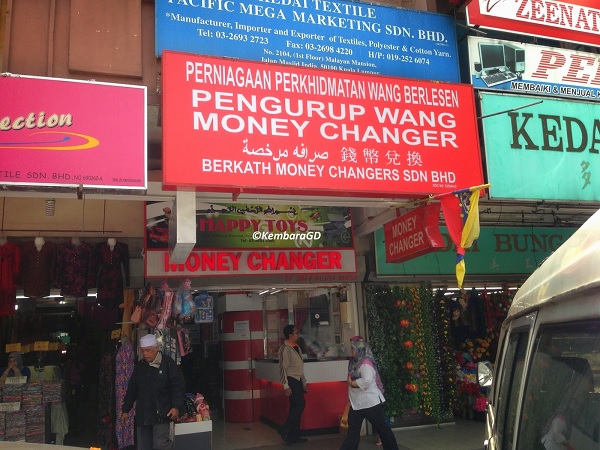
Money changers, also known as currency exchange providers, play a crucial role in facilitating the exchange of one currency for another. They offer exchange services to individuals and businesses, allowing them to obtain foreign currency for travel, business transactions, or investment purposes. The exchange rate offered by a money changer represents the price at which they buy and sell foreign currency, However, different money changers may have different exchange rates due to various factors :
Operating Costs:
Each money changer may have different operating costs, including rent, staffing, utilities, and regulatory compliance expenses. These costs can vary depending on factors such as location, size of the establishment, and business model. Money changers with higher operating costs may need to charge slightly higher exchange rates to cover their expenses and maintain profitability.
Competition:
Competition among money changers in the same area can influence exchange rates. Money changers may adjust their rates in response to competitors' pricing strategies to attract customers. In highly competitive markets, money changers may offer more competitive rates to gain market share and increase customer traffic.
Supplier Relationships:
Money changers obtain foreign currency from various sources, including banks, wholesalers, and other currency providers. The rates at which they purchase foreign currency from suppliers can vary based on factors such as transaction volume, creditworthiness, and contractual agreements. Money changers with favorable supplier relationships may be able to offer better exchange rates to customers.
Profit Margin:
Money changers typically earn a profit by buying and selling foreign currency at different rates. The difference between the buying (bid) and selling (ask) rates is known as the spread, and money changers may adjust this spread to generate revenue. Money changers with larger profit margins may offer less favorable exchange rates to customers to maximize their profits.
Market Conditions:
Exchange rates are influenced by supply and demand dynamics in the foreign exchange market. Fluctuations in currency values, economic indicators, geopolitical events, and market sentiment can impact exchange rates on a real-time basis. Money changers may adjust their rates in response to changing market conditions to manage risk and maintain profitability.
Additional Services and Amenities:
Money changers may differentiate themselves by offering additional services, such as convenient locations, extended operating hours, or value-added services like currency delivery or travel-related products. Money changers that provide added convenience or benefits may charge slightly higher exchange rates to reflect the value of their services.
Overall, the differences in exchange rates among money changers can stem from a combination of factors related to operating costs, competition, supplier relationships, profit margins, market conditions, and additional services. Customers should compare rates among different money changers and consider factors such as convenience, reputation, and service quality when choosing where to exchange currency.
